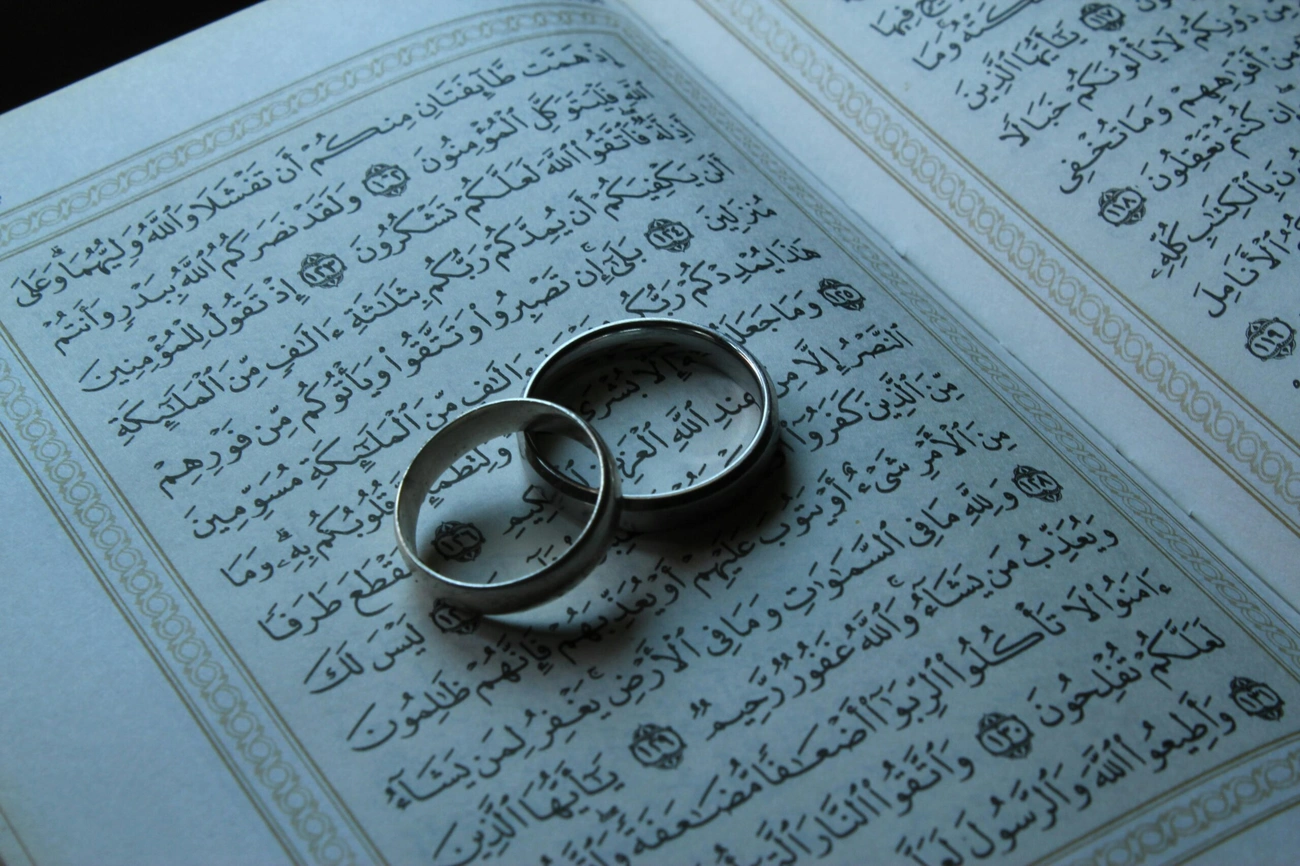N
Financial responsibility stands as a cornerstone of husband responsibility in Islam, yet many Muslim men enter marriage without fully understanding these divine obligations.
Marriage in Islam is not merely a social contract but a sacred covenant with clearly defined rights and duties. Financial obligations form the backbone of a husband’s role, creating stability and harmony within the family unit. Despite their importance, these duties often remain misunderstood or overlooked in contemporary Muslim households.
Islamic law establishes clear financial responsibilities for husbands that balance traditional values with practical needs. From providing essential maintenance (Nafaqah) to respecting a wife’s financial autonomy, these obligations create a framework for economic justice within the family. Furthermore, these responsibilities evolve alongside modern financial challenges while remaining firmly rooted in Quranic principles.
Whether you’re recently married or have been a husband for years, understanding these seven critical financial duties will help you fulfil your Islamic obligations while building a stronger marriage based on justice and compassion.
Providing Nafaqah (Financial Maintenance)
Nafaqah represents the cornerstone of a husband’s financial obligations in Islamic marriage. This essential duty establishes financial security for the family and demonstrates the husband’s commitment to his role as provider and protector.
Nafaqah definition and Islamic basis
Nafaqah refers to the financial maintenance and support that a husband must provide for his wife and children. This obligation derives directly from the Quran, where Allah states: “Men are the protectors and maintainers of women, because Allah has made one of them to excel the other, and because they spend (to support them) from their means.” Additionally, the Prophet Muhammad emphasised this duty in his farewell sermon: “Fear Allah concerning women! Their rights upon you are that you should provide them with food and clothing in a fitting manner.”
The Islamic foundation for Nafaqah stands firm across all major schools of jurisprudence. Essentially, this obligation begins immediately upon marriage consummation or when the husband has not yet provided the agreed mahr (dowry). According to the Hanbalī school, a wife’s maintenance takes priority because it “is contractually provided in exchange for something else [the marriage] whereas maintenance for relatives is provided out of compassion.”
What Nafaqah includes in modern times
In contemporary contexts, Nafaqah encompasses several essential elements:
-
Food, clothing, and shelter appropriate to the family’s social standing
-
Medical expenses and healthcare
-
Household necessities and furnishings
-
Hygienic and cosmetic products
-
Seasonal clothing according to needs
Notably, the standard of provision should be “reasonable” rather than extravagant, as the Quran instructs: “Let the rich man spend according to his means; and the man whose resources are restricted, let him spend according to what Allah has given him.” Moreover, in some circumstances, the husband must provide household help or services as part of Nafaqah.
Consequences of neglecting Nafaqah
Failing to fulfil this fundamental duty carries serious implications. Firstly, unpaid Nafaqah becomes a debt that remains obligatory upon the husband. If he persistently refuses to provide maintenance, an Islamic religious magistrate may grant his wife divorce at her request.
Additionally, the wife gains certain rights when Nafaqah is neglected. She may choose between leaving her husband or remaining with him without the obligation to allow intimacy, as “allowing intimacy is in return for maintenance.” She may consequently leave his household and earn money independently, without being detained by him.
Most importantly, neglecting Nafaqah represents a failure in one’s religious duties, as the Prophet advised unmarried men: “Whoever amongst you can afford to get married, let him do so, and whoever cannot afford, let him fast,” indicating that financial capability is a prerequisite for marriage.
Paying the Mahr (Dowry)
The mahr represents a husband’s inaugural financial duty in Islamic marriage—a mandatory gift he must provide to his bride. Unlike nafaqah, which continues throughout marriage, mahr establishes the wife’s financial rights from the outset.
Mahr in the Qur’an and Hadith
The obligation of mahr derives directly from the Qur’an, where Allah states: “And give to the women (whom you marry) their mahr with a good heart.” This divine command establishes mahr as the wife’s exclusive right that neither her father nor anyone else may take without her approval. Indeed, the Qur’an further emphasises this obligation in Surat An-Nisa (4:20): “But if you want to replace one wife with another and you have given one of them a great amount (in gifts), do not take back from it anything.”
The Prophet Muhammad reinforced this duty through his teachings. When ’Abd al-Rahman ibn ‘Awf informed him of his marriage, the Prophet asked, “How much did you give her?” Upon hearing “Gold equal to the weight of one date stone,” the Prophet approved. In another instance, he permitted a man with no possessions to marry based on his knowledge of the Qur’an.
Islamic jurisprudence recognises two principal forms of mahr:
-
Muajjal (Immediate Mahr): Given to the bride upfront at the time of marriage, often as money, property, or jewellery
-
Mu’akhkhar (Deferred Mahr): Payable at a later date, typically upon divorce or the husband’s death
Although couples must specify the mahr amount before signing the marriage contract, the payment timing remains flexible. However, an unpaid mahr becomes a debt that must be settled.
Common misunderstandings about Mahr
Many people mistakenly confuse mahr with dowry. Whereas dowry involves the bride’s family giving to the groom—a cultural practise not sanctioned in Islam—mahr flows in the opposite direction. Moreover, contrary to common belief, mahr is not a “bride price” or payment for conjugal rights but rather a symbol of respect and commitment.
Another misconception is that high mahr ensures a better marriage. Instead, Islam encourages reasonable amounts based on the groom’s means. The Prophet himself gave approximately 500 dirhams as mahr to his wives—equivalent to modern currency today. Finally, some incorrectly believe mahr can be taken back. In reality, once given, it becomes the wife’s exclusive property, which she may use as she wishes. She may voluntarily remit part or all of it, but this must be entirely of her own accord.
Ensuring a Reasonable Standard of Living
Beyond basic Nafaqah, a Muslim husband must ensure his family enjoys a reasonable standard of living that balances necessity with comfort. This obligation transcends mere survival needs to encompass quality of life appropriate to social standing and financial capacity.
What is considered ‘reasonable’ in Islam
Islam establishes a clear framework for what constitutes a reasonable standard of living through a three-tier hierarchy of needs:
-
Necessities (Dharuriyyat): Essential items required to preserve the five foundations of life—religion, life, intellect, lineage, and property. These include food, shelter, clothing, healthcare, education, and marriage.
-
Conveniences (Hajiat): Items that remove difficulties without being vital, such as transportation and seasonal comforts.
-
Refinements (Kamaliat): Enhancements that add quality to life after fulfilling primary and secondary needs.
The Quran explicitly encourages Muslims to enjoy Allah’s bounties without setting quantitative limits to material growth, provided such growth aligns with Islamic principles. Throughout history, Muslim scholars have emphasised that Islam does not promote asceticism; Umar identified food, seasonal clothing, and transportation as state-guaranteed rights.
Adjusting lifestyle based on income
Primarily, Islam teaches moderation in financial matters. The Quran states: “Those who, when they spend, are neither extravagant nor miserly, but hold a medium way between those extremes.” This middle path requires husbands to spend according to their means—neither beyond their capacity nor too restrictively.
In practical terms, a husband must create a budget that prioritises essential needs before luxury expenses. Simultaneously, he should avoid wastefulness (israf), as Allah warns: “Indeed, the wasteful are brothers of the devils.”
Balancing needs and wants in the household
Maintaining household harmony requires transparency and fairness in financial decisions. In essence, Islamic teachings encourage wives not to burden their husbands beyond their capacity. Nonetheless, a wife deserves a standard of living at least equal to what she experienced before marriage.
For high-status families, the husband may need to provide household help if his wife is unaccustomed to certain tasks. Scholars across all four major jurisprudence schools agree this falls under the husband’s obligation to “live with them honourably” as commanded in the Quran.
Respecting the Wife’s Financial Independence
Unlike financial provision duties, Islam also mandates respecting the financial autonomy of wives. A proper understanding of this balance prevents both neglect and overreach in marital finances.
Islamic ruling on the wife’s income
Islam clearly establishes that a wife’s wealth, earnings, and inheritance remain exclusively hers. The Quran states in Surah An-Nisa: “Men shall have a share of what they earn, and women shall have a share of what they earn.” This principle applies regardless of how much either spouse earns or possesses.
When and how a wife may contribute
Although never obligated to contribute financially, a wife may voluntarily assist with household expenses. This generosity should be acknowledged as charity rather than duty, provided it occurs without pressure or expectation.
Avoiding financial coercion
Financial coercion constitutes a serious transgression against Islamic principles. Signs of financial coercion include pressuring wives to:
-
Contribute specific amounts to household expenses
-
Surrender control of personal assets
-
Account for personal spending from her own wealth
Proper Islamic conduct requires husbands to maintain clear boundaries between their provision duties and their wife’s personal assets, thereby honouring both her dignity and divine ordinance.
Transparent Financial Communication

Open communication about money matters forms an essential Islamic duty for husbands, creating trust and harmony within the household. This obligation extends beyond simply providing financial resources to actively involving spouses in financial decisions.
Importance of financial honesty in marriage
The foundation of any successful marriage in Islam is honesty, particularly regarding finances. Concealing financial information inevitably leads to distrust and tension, directly contradicting the Quranic principle of mutual support. Financial transparency allows couples to plan effectively for important goals like purchasing a home or saving for children’s education.
Discussing budgets and expenses openly
Regular, meaningful conversations about shared financial goals represent a crucial practice. Effective budget meetings include reviewing spending trends, addressing surprises, preparing for upcoming expenses, and tracking progress toward long-term goals.
Avoiding secrecy and financial manipulation
Financial infidelity—hiding transactions or accounts from one’s spouse—constitutes a serious breach of trust. Islam strictly prohibits using a wife’s money without permission, making transparency not merely advisable but mandatory for fulfilling one’s religious duties.
Supporting Children and Their Needs
Caring for children’s financial needs constitutes a sacred duty for Muslim husbands, extending beyond basic provision to comprehensive support throughout childhood.
Islamic duty to provide for children
The obligation to provide for one’s children is firmly established in Islamic law. This responsibility remains regardless of marital status—even in cases of divorce, the father must continue providing for his children.
Education, healthcare, and daily expenses
A father’s financial responsibilities encompass several critical areas:
-
Food, accommodation, and clothing on a reasonable basis
-
Medical treatment and healthcare costs
-
Educational expenses through university
-
Seasonal clothing according to needs
Childcare costs when both parents work
Modern scenarios where both parents work create additional considerations for childcare expenses. Though traditionally mothers bear primary responsibility for childcare, fathers retain overall financial responsibility for the family’s wellbeing. Fathers should generally cover these costs—especially transportation expenses—unless the wife voluntarily contributes.
Balancing Support Between Wife and Parents
Muslim husbands often face the complex challenge of balancing financial duties between wives and parents—a situation requiring both wisdom and adherence to Islamic principles.
Islamic guidelines on supporting parents
First and foremost, Islam places enormous emphasis on honouring parents. The Quran positions this duty second only to worshipping Allah: “Your Lord has decreed that you worship none but Him, and that you shall render utmost kindness to your parents.” Financially supporting parents becomes obligatory when they are poor, in need, and unable to earn. Giving to family members yields dual rewards—charity plus strengthening family ties.
Prioritising needs fairly
Islamic jurisprudence establishes clear priorities for financial support:
-
Wife and children take precedence due to contractual obligation
-
Parents come next, especially when poor or unable to work
-
Extended family members follow according to inheritance relationships
Chiefly, a husband’s primary responsibility remains his immediate family.
Avoiding injustice between family members
Maintaining family harmony requires avoiding favouritism. Regular communication through visits, calls, or letters helps uphold relationships without causing marital discord. Where conflicts arise, the husband should seek compromise rather than forcing either party to sacrifice their rights completely.
Conclusion
Financial duties stand as foundational pillars of a Muslim husband’s responsibilities, deeply rooted in divine guidance and prophetic teachings. These obligations work together to create harmony, justice, and prosperity within Muslim families when properly understood and implemented.
Providing Nafaqah remains the cornerstone responsibility that establishes financial security for wives and children. This duty, alongside the proper payment of Mahr, demonstrates the husband’s commitment to honouring Allah’s commands regarding marriage. Both obligations require careful attention to Islamic principles rather than cultural practises that might contradict divine guidance.
Muslim husbands must additionally ensure a reasonable standard of living balanced against their income level while respecting their wife’s complete financial independence. This balance prevents both extravagance and miserliness, creating a middle path that reflects Islamic moderation.
Families thrive primarily through transparent financial communication. Honest discussions about budgets, expenses, and financial goals prevent mistrust and strengthen marital bonds. Similarly, properly supporting children’s needs from education to healthcare fulfils another crucial Islamic obligation that shapes future generations.
Perhaps the most delicate balance exists between supporting one’s wife and parents. Islamic guidance offers clear priorities that honour both relationships without causing injustice to either party. Following these divine instructions creates homes filled with compassion and mutual respect.
The comprehensive financial framework Islam provides addresses both material needs and spiritual development. Husbands who fulfil these duties faithfully not only meet their religious obligations but also build marriages characterised by justice, compassion, and mutual growth. Through proper understanding and application of these principles, Muslim families can navigate modern financial challenges while remaining firmly anchored in timeless divine wisdom.

